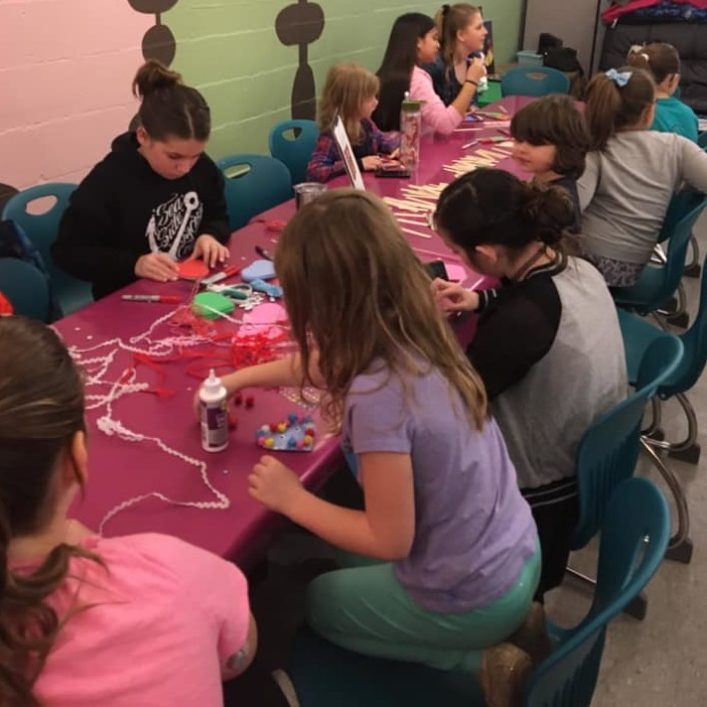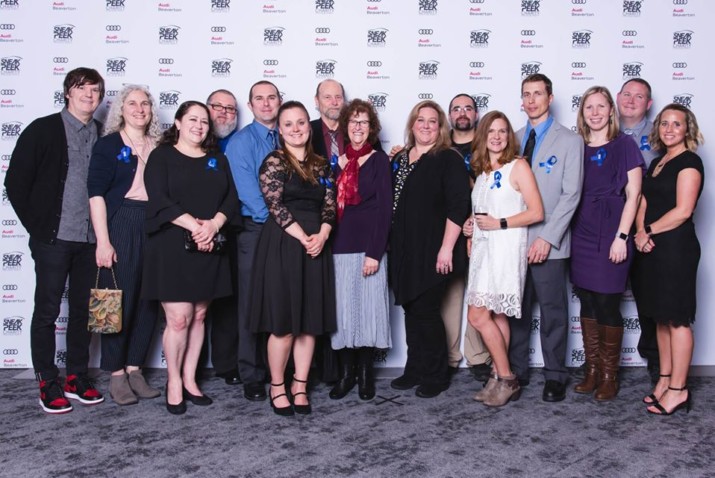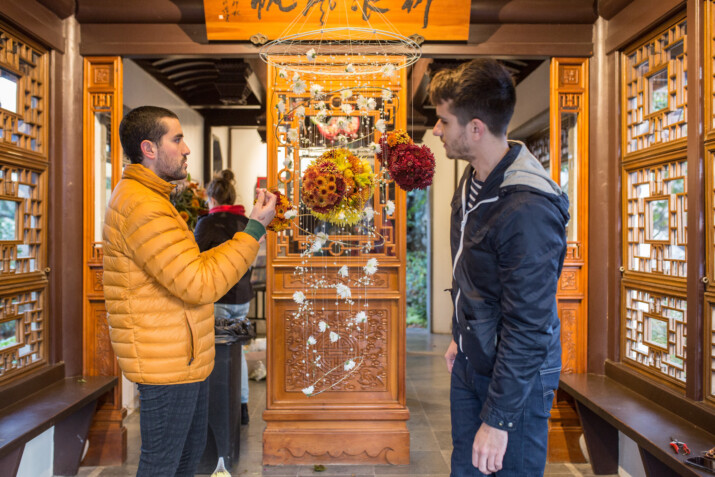Portland, OR. “JDRF is the world’s largest nonprofit funder of type 1 diabetes (T1D) research. Our focus is on finding a cure; until we do, the advancements we’re making every day ease the burden of those living with the disease.” That’s the message the JDRF of Oregon/SW Washington wants you to hear. It offers many programs to support the community, like youth art groups for kids with T1D.

Summer Art Group is just one of the offerings of the local nonprofit, others include advocacy, outreach and research advancements.
JDRF has been leading the charge against diabetes for 25 years and leaders want you to be a part of their anniversary celebration. There are many ways to become involved and contribute to JDRF of Oregon/SW Washington. One is to support JDRF’s ticket sales for the VIP Sneak Peek at the Portland Auto Show on February 19th, 2020 at the Oregon Convention Center. You’ll see 600 of the best production, exotic and concept vehicles 2020 has to offer. $100 of your $125 ticket will benefit JDFR.

Last February many JDRF supporters took advantage of the Charity VIP event. They were among the first to attend the Portland International Auto Show, minus the crowds. JDRF is one of the 8 Charities who benefited.
The Sneak Peek ticket automatically enters you for a chance to win a 2020 Audi Q3 45 TFSI Quatrro. Click here for a link to Portland Auto Show Charity VIP tickets.
Here’s information about the 2020 Hope Gala: On April 25th, 2020 the annual JDRF Hope Gala will bring together over 500 passionate community leaders and T1D leaders at the Sentinel Hotel to reflect on the past 25 years and to raise much-needed funding for fulfill JDRF’s mission of improving lives today and tomorrow by accelerating life-changing breakthroughs to cure, prevent and treat type 1 diabetes and its complications. Click here for more information about the event.
From JDRF:
Whether you donate your time or dollars, life-changing breakthroughs in T1D treatments and therapies couldn’t happen without you. You can donate directly to JDRF by clicking here.

Ways to Give

Ways to Fundraise

Become a Volunteer

Become an Advocate
JDRF is the leading global organization funding type 1 diabetes (T1D) research. Our strength lies in our exclusive focus and singular influence on the worldwide effort to end T1D.
Vision: A world without type 1 diabetes
Mission: Improving lives today and tomorrow by accelerating life-changing breakthroughs to cure, prevent and treat T1D and its complications
Why we fight type 1 diabetes
Type 1 diabetes is an autoimmune disease that strikes both children and adults suddenly. It has nothing to do with diet or lifestyle. There is nothing you can do to prevent it. And, at present, there is no cure.
In T1D, your pancreas stops producing insulin—a hormone the body needs to get energy from food. This means a process your body does naturally and automatically becomes something that now requires your daily attention and manual intervention. If you have T1D, you must constantly monitor your blood-sugar level, inject or infuse insulin through a pump, and carefully balance these insulin doses with your eating and activity throughout the day and night.
However, insulin is not a cure for diabetes. Even with the most vigilant disease management, a significant portion of your day will be spent with either high or low blood sugar levels. These fluctuations place people with T1D at risk for potentially life-threatening hypoglycemic and hyperglycemic episodes as well as devastating long-term complications such as kidney failure, heart attack, stroke, blindness, and amputation. Learn more about T1D.
JDRF wants a world without T1D
JDRF works every day to change the reality of this disease for millions of people—and to prevent anyone else from ever knowing it—by funding research, advocating for government support of research and new therapies, ensuring new therapies come to market and connecting and engaging the T1D community. Founded by parents determined to find a cure for their children with T1D, JDRF expanded through grassroots fundraising and advocacy efforts to become a powerhouse in the scientific community with dozens of U.S. locations and six international affiliates. We’ve funded more than $2 billion in research to date and made significant progress in understanding and fighting the disease. We must keep up the pace of funding so progress doesn’t slow or stop entirely.
You’re the reason for our success.
Every dollar we put toward research comes from donations. So when you support JDRF with your time, talent, voice and, yes, your money, you enable us to advance even more research.
There are many ways to join the JDRF family, but for 47 years there has been only one reason—because we are the organization that will turn Type One into Type None.
We have some of the best ratings for an organization focused on a single disease from charity watchdog groups and media. In 2012, Forbes named JDRF one of its five “All-Star” charities, based on its evaluation of our financial efficiency.
What’s in a name? A bit of “JDRF” history
JDRF has led the search for a cure for T1D since our founding in 1970. In those days, people commonly called the disease “juvenile diabetes” because it was frequently diagnosed in, and strongly associated with, young children. Our organization began as the Juvenile Diabetes Foundation. Later, to emphasize exactly how we planned to end the disease, we added a word and became the Juvenile Diabetes Research Foundation. Today, we know an equal number of children and adults are diagnosed every day—approximately 110 people per day. Thanks to better therapies—which JDRF funding has been instrumental in developing and making available—people with T1D live longer and stay healthier while they await the cure. So a few years ago, we changed our name to JDRF:
- To remove the misconception that T1D is only a childhood disease
- To acknowledge that nearly 85 percent of people living with the disease are over age 18
- To reinforce our commitment to funding research that improves life for people of all ages and all stages of the disease
*This informational feature story is a sponsored story from Portland Society Page.

















